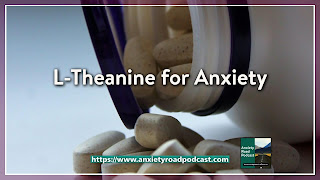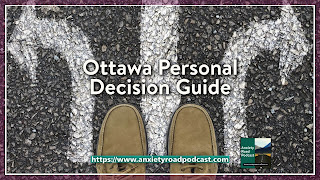In this episode, I want to do a dive into what you should know before buying a book on anxiety support or treatment. Depending on how and where you get that book, there could be a certain amount of misrepresentation.
The topics in this episode include Private Label Release/White Label books, personal narratives and self-help/support and workbooks. One of my goals for 2025 is find current books that help specific populations.
The music for this week's show is from Logan at www.musicformakers.com. I mispronounced the name of the website and had to take it out.
Wee bit of housekeeping.
I am a real person. This is a 95% human generated podcast. I do use search engines. Many of them now have embed AI features. I write my own scripts and use an image editor that to my knowledge, doesn't use AI (yet). I use a company called Auphonic that does have AI sound cleaning features.
Long time listeners know I need all the help I can get in regard to sound quality.
I need to say all of that because there is now technology that an AI generated audio show hosted by two non-human AI voices. That podcast can be created and uploaded in about 20ish minutes.
There are humans that subscribe to that service. Mainly for income generation. More podcasts, more access to advertiser money.
For those of you new here, I do not accept ads, affiliate deals or influencer perks. I don’t do interviews for free or for profit. Not saying I’ll never do it but I haven’t in 8 years so yeah, that is a thing.
If you need support contact the National Suicide Prevention Lifeline at 988 or 1-800-273-8255, the Trevor Project at 1-866-488-7386 or text “START” to 741-741.
Resources Mentioned:
Descriptive Personal Narrative Resource: Scott Stossel's My Age of Anxiety
Self Help, Support & Workbooks:
You Will Get Through This: A Mental Health Tool Kit―Help for Depression, Anxiety, Grief, and More by Julie Radico PsyD, Charity O’Reilly LPC, Nicole Helverson PsyD
Combo Personal Narrative & Self-Help/Support:
From Stuck to Unstuck: Break Free from the OCD & Anxiety Loop Using the Triple-A Response® and Take Back Control of Your Life by Matthew Codde LCSW. There is a website with information about the book. There is also a podcast that talks about mental health issues.
Disclaimer:
Links to other sites are provided for information purposes only and do not constitute endorsements.
Always seek the advice of a qualified health provider with questions you may have regarding a medical or mental health disorder.
This blog and podcast is intended for informational and educational purposes only. Nothing in this program is intended to be a substitute for professional psychological, psychiatric or medical advice, diagnosis, or treatment.























